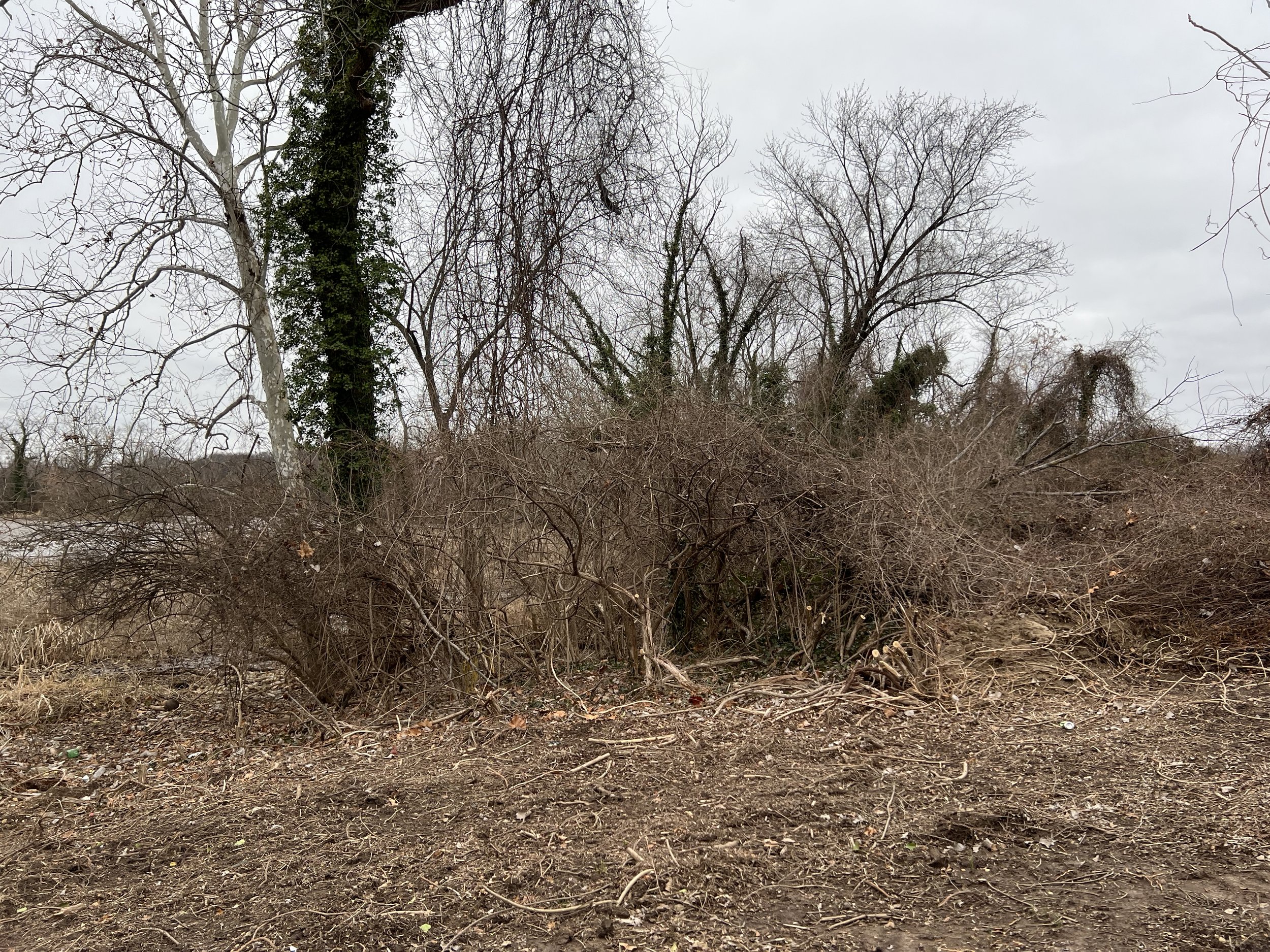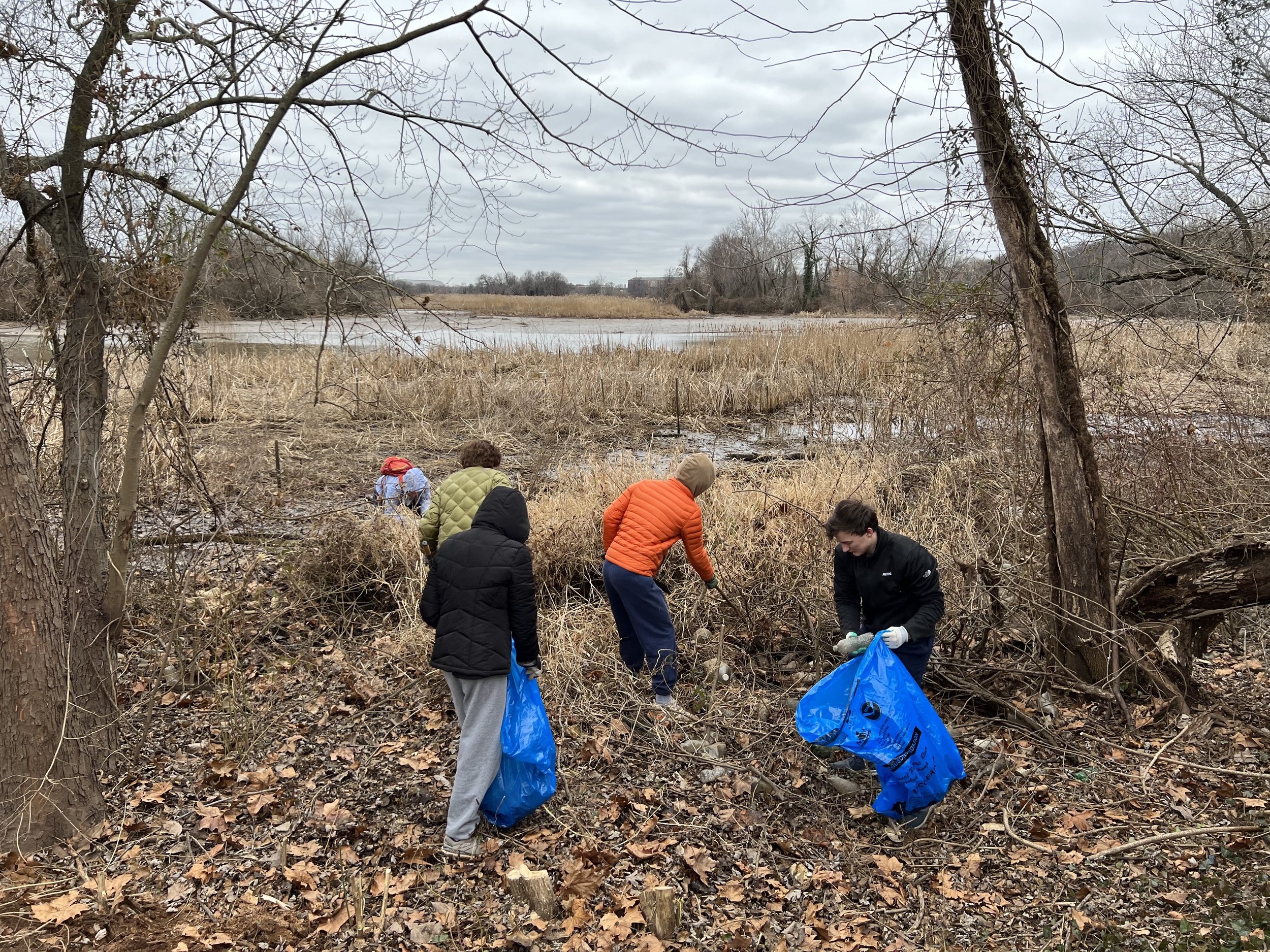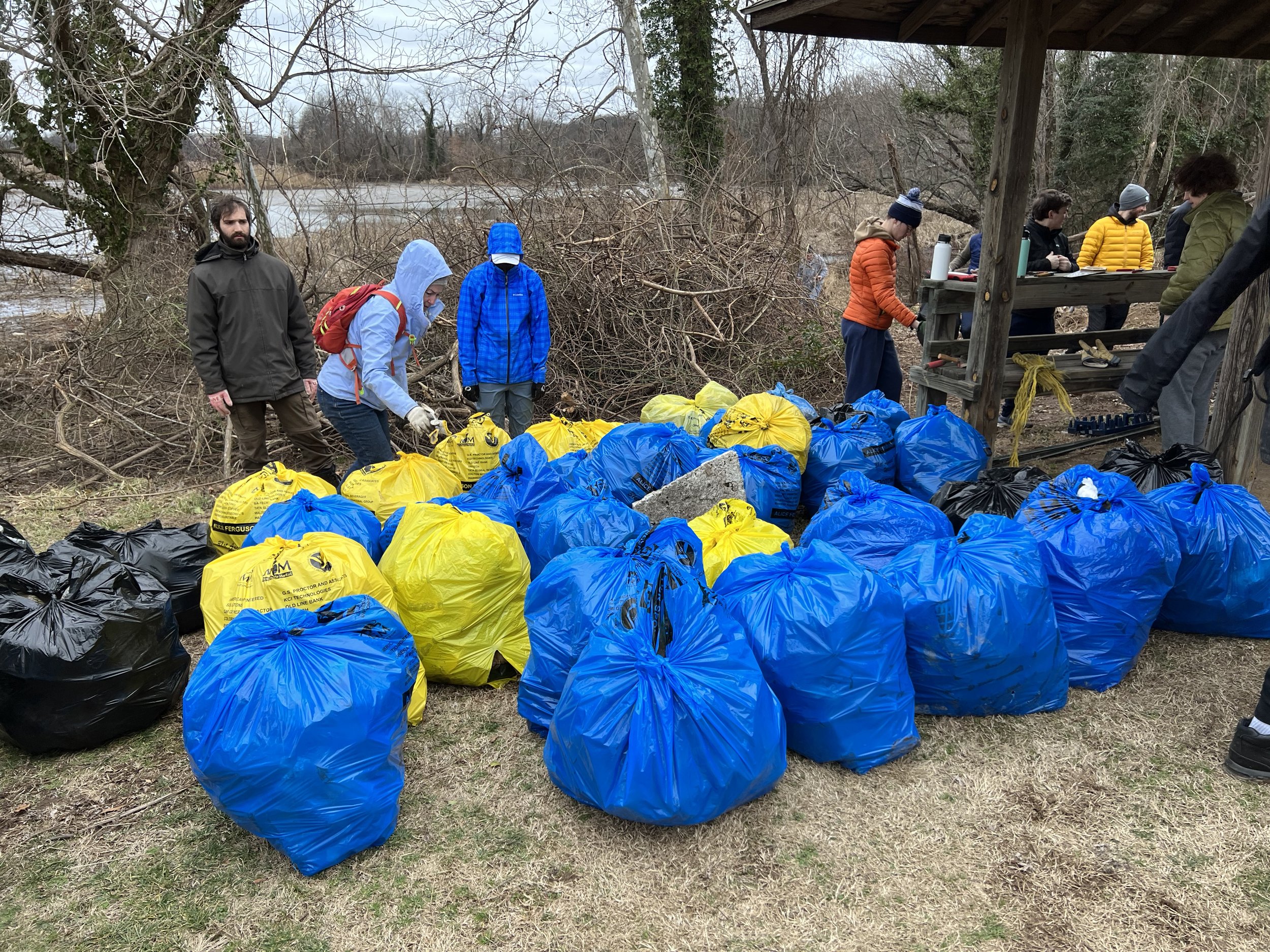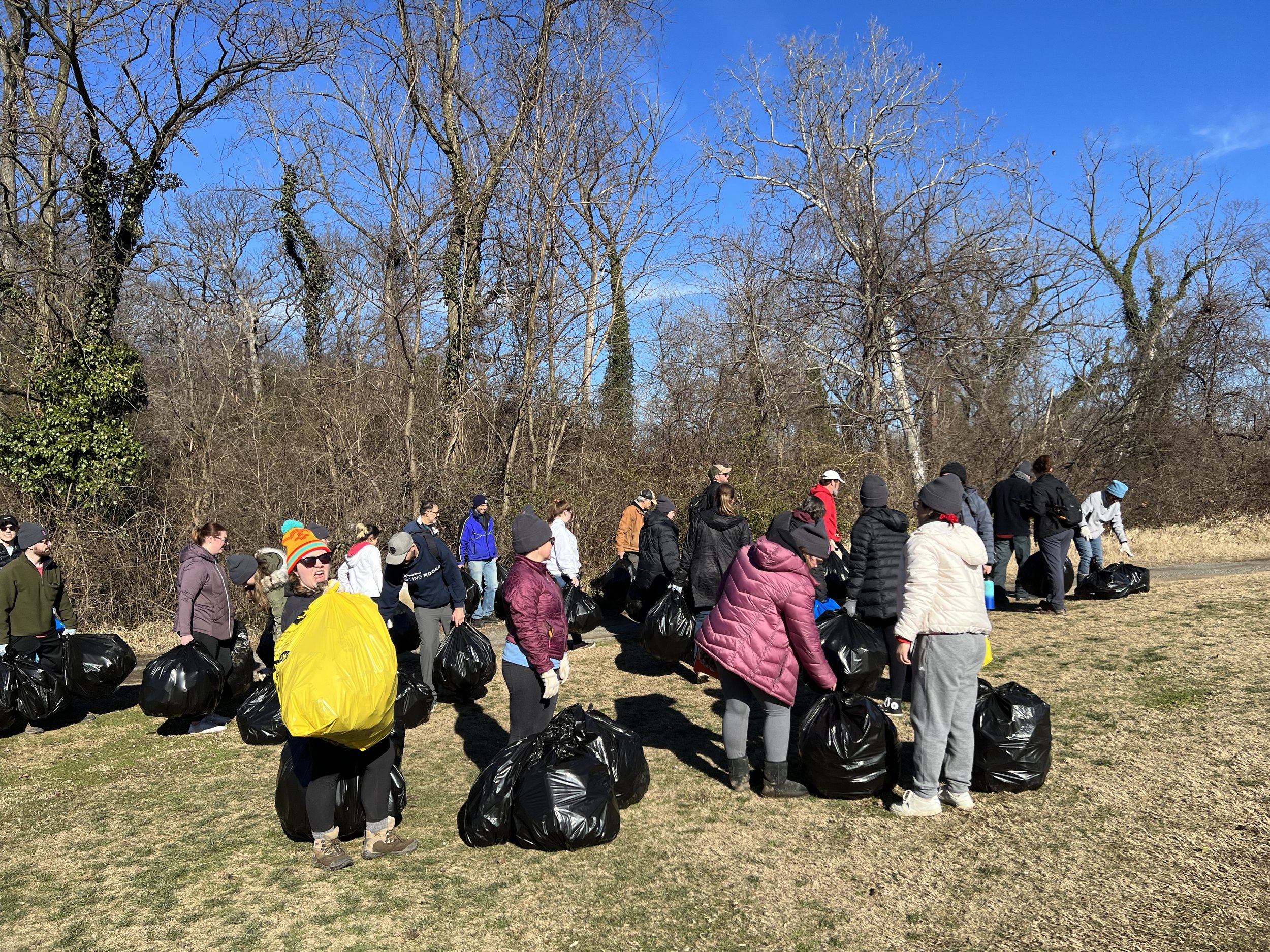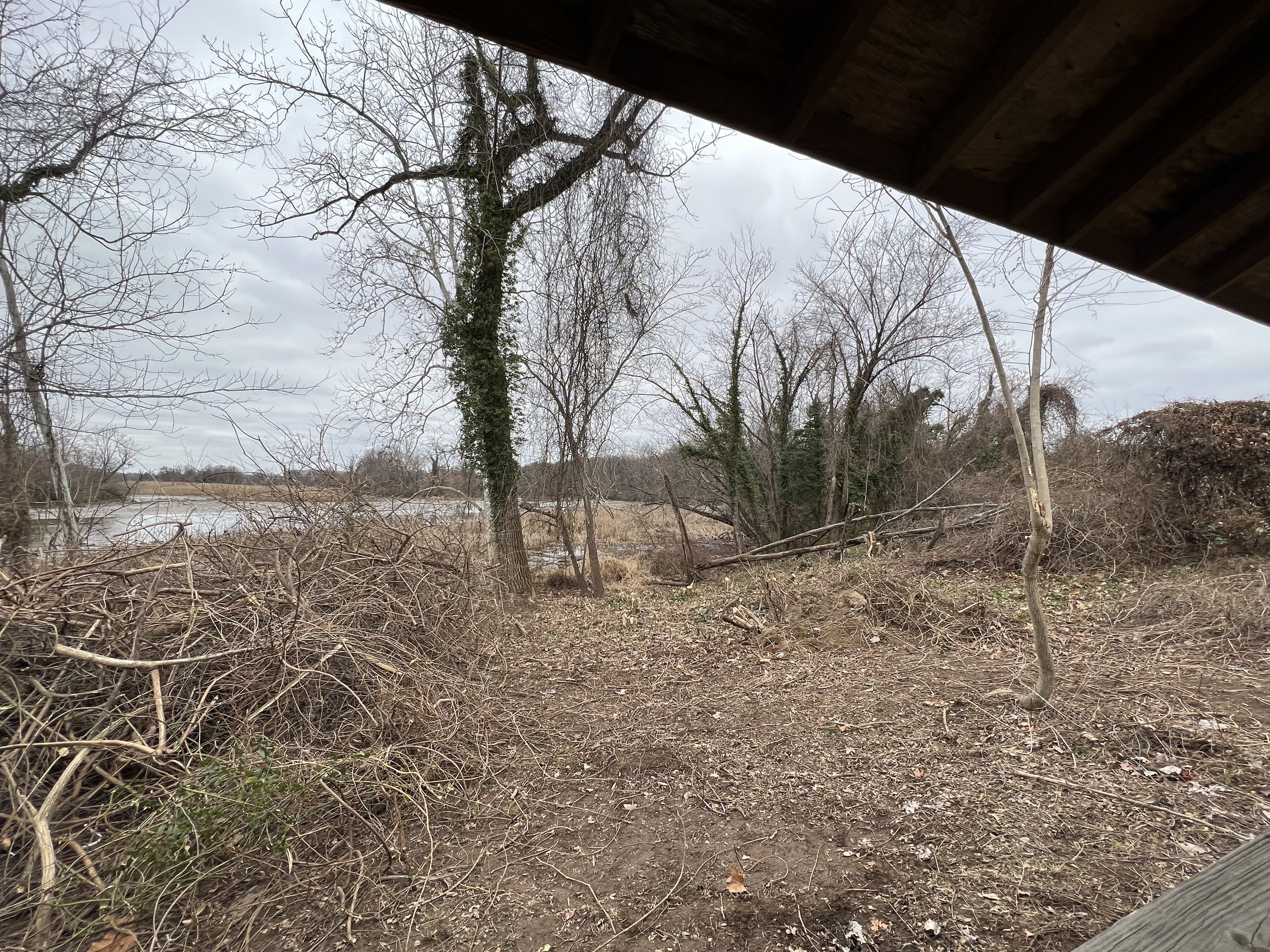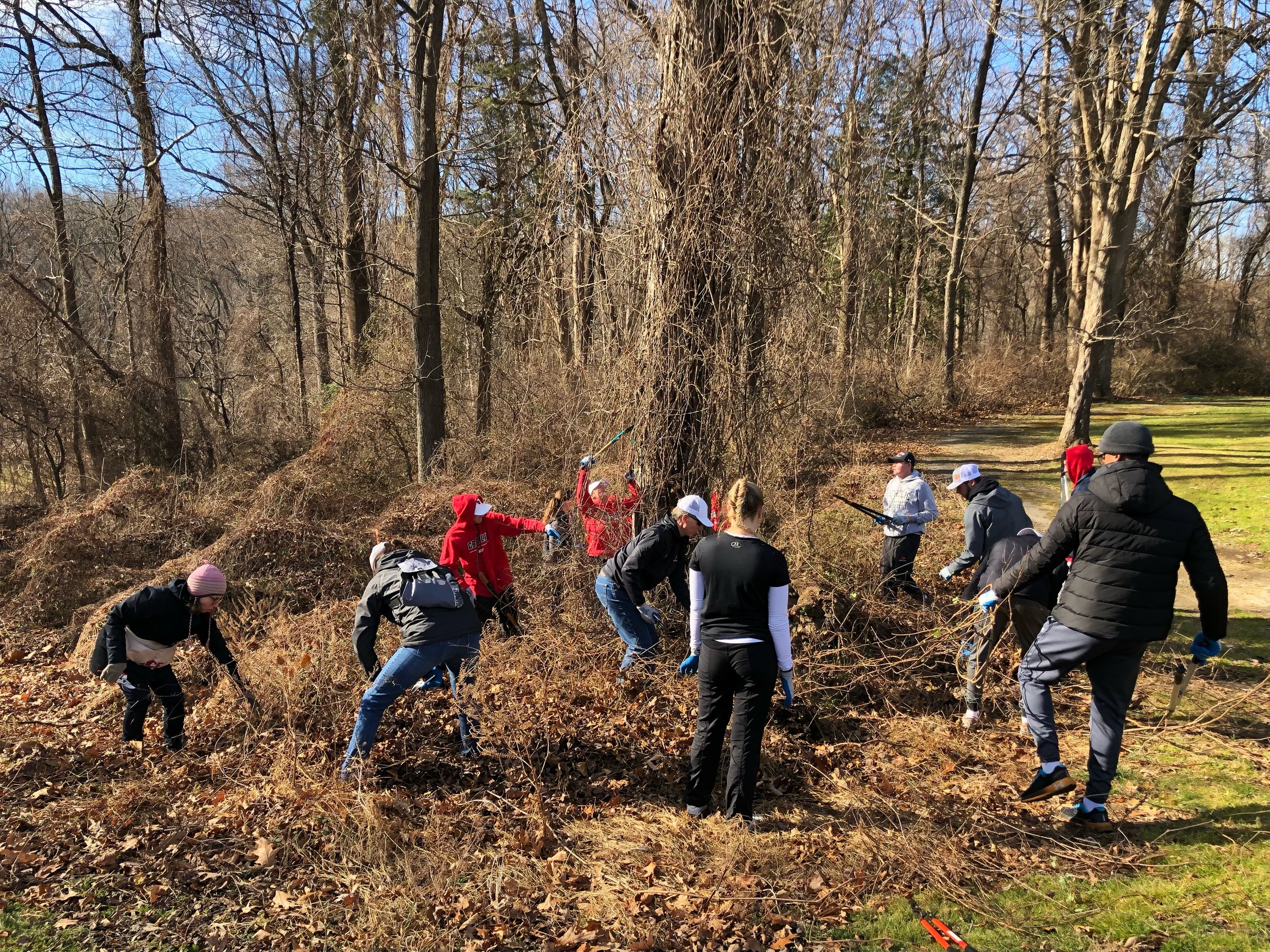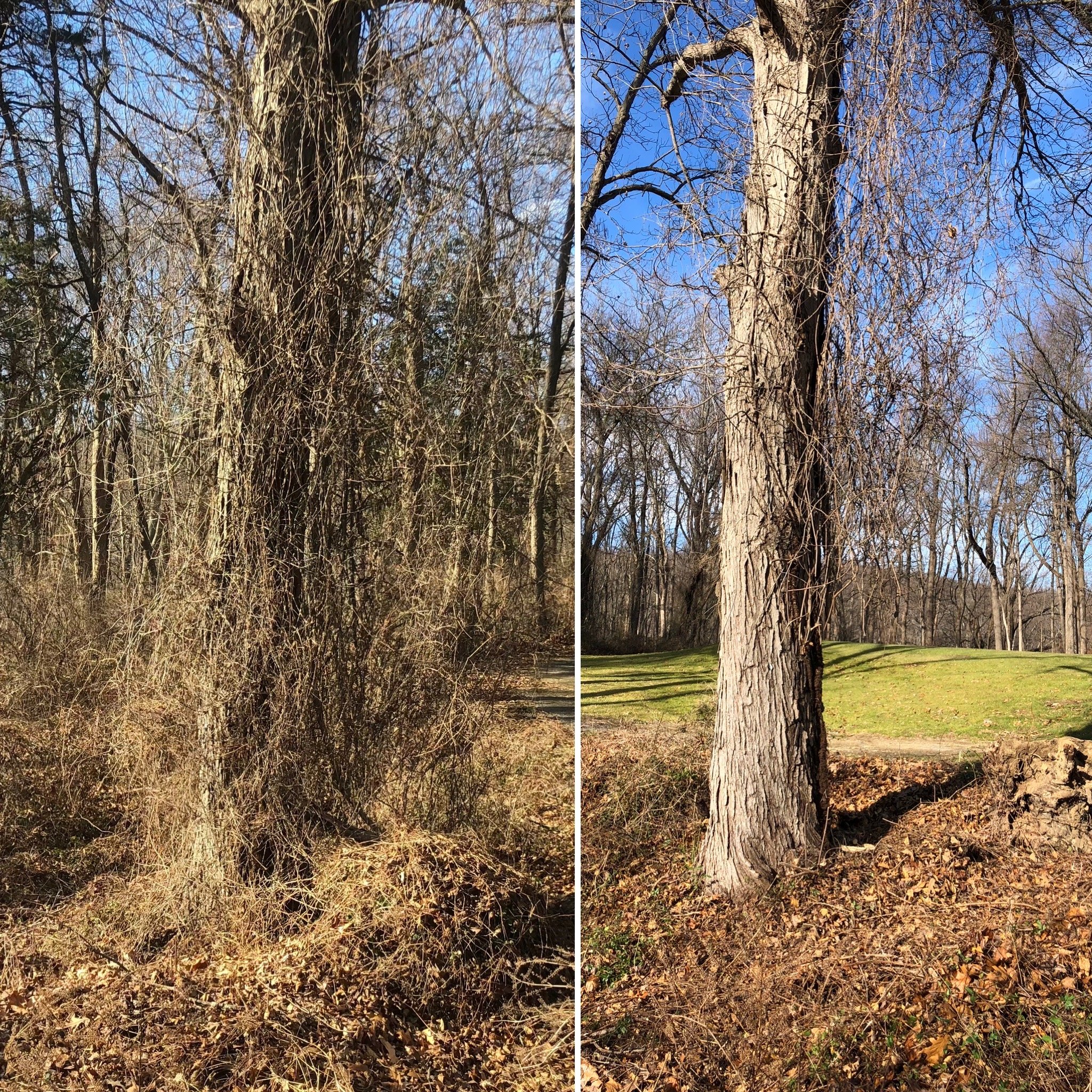Building Dr. King’s ‘Beloved Community’ Through Municipal Golf
Volunteers free a tree from invasive vines at Rock Creek Park Golf Course in celebration of Martin Luther King, Jr. Day.
Martin Luther King, Jr. Day is the only federal holiday dedicated as a National Day of Service. Volunteering and offering community service functions as a tangible way to celebrate the life and legacy of one of our country’s most important civil rights leaders.
Dr. King popularized the term ‘The Beloved Community’ because it represented the end result of a society rooted in nonviolence, equality and justice for all. It is a global vision in which of our planet's inhabitants can share in the wealth of our Mother Earth’s abundance. The Beloved Community is a place where poverty, hunger, homelessness, racism, discrimination, bigotry, prejudice, fear and hatred are not tolerated and are instead replaced with love, trust, sisterhood, brotherhood and peace.
Dr. King also lived by the 6 principles of non-violence and one in particular, Principle 4, is especially relevant when it comes to building a The Beloved Community through acts of service:
“Nonviolence Holds That Unearned, Voluntary Suffering for a Just Cause Can Educate and Transform People and Societies.”
In other words, volunteerism and community service can create what our society needs most right now: Empathy. When we give our time, our energy, our passion, our love, and our blood, sweat and tears to support a just cause, we see the value other people possess and build appreciation for how others live their lives, overcome their daily struggles, and celebrate life’s joys. When we commit acts of community service, we take small steps towards building what Dr. King and all the other past, current and future Civil Rights leaders strive for:
The Beloved Community.
Celebrating MLK Day ‘23 at Washington, D.C’s Municipal Golf Courses
It is my job as the Sustainability and Community Engagement Project Manager for the National Links Trust (NLT) to envision a world where municipal golf can function as a living embodiment of the principles and values that Dr. King stood for and to bring that vision to life through projects and collaborations that support social, environmental and climate justice-based initiatives.
The game and industry of golf certainly is no stranger to negative criticism and skepticism from non-golfers. One of the biggest challenges in my role with NLT (and a fundamental reason why we (Andre, Alex and I) started Driving the Green) is working to change the hearts and minds of individuals that are not fans of golf or have never felt welcomed by the sport. This presents an opportunity for golf to create its own platform to share how it is building a better society for all and I’m excited to be on the frontlines of this movement here in Washington, D.C.
The best way I’ve found to engage with non-golfers, critics and skeptics is to invite them to the golf course and share with them NLT’s vision (and mine) for how municipal golf can heal communities and drive sustainable development. Volunteer outings and community engagement events at each of NLT’s three municipal golf courses, East Potomac Golf Links, Rock Creek Park Golf Course and Langston Golf Course, provide the perfect arena to support this mission. Each course is unique and historic in its own way and I thrive off the opportunity to share their story with each person who makes their way onto the golf course for the first time.
And let me tell you, Langston Golf Course serves as the perfect host for such events and the Martin Luther King, Jr. Day of Service weekend is a pretty good time to schedule them.
In partnership with the Anacostia Watershed Society, NLT hosted a birdwatching tour at Langston Golf Course.
The Site - Langston Golf Course
Langston Golf Course, located in Northeast Washington, D.C. along the banks of the Anacostia River and Kingman Lake, is named after another Civil Rights leader, John Mercer Langston. The National Park Service opened the golf course in 1939 as a 9-hole facility specifically designed to serve D.C.s bustling African-American golf community. In fact, Langston Golf Course is home to the two oldest African-American women’s and men’s golf clubs, the Wake-Robin Golf Club and the Royal Golf Club, respectively, which were both formed before the course's existence. The second 9 holes opened 10-years later and four of them (holes 10-13) as well as the driving range were built on Kingman Island.
Kingman Island is a man-made island built by the Army Corp of Engineers to revitalize the Anacostia River. As a result of urban development, erosion and sediment runoff shallowed the river and degraded its surrounding habitat. To mitigate this, the Army Corp of Engineers dredged the Anacostia River and created Kingman Island.
An unfortunate side effect of Kingman Island’s creation was the vast acreage of disturbed soil that provided invasive vegetation with unmitigated access to slowly and surely take over all the unmanaged regions of the golf course. When the course first opened, the portions of the course residing on Kingman Island were mostly treeless. Now, there are over 24 acres of invasive vegetation lining the shores of Kingman Lake and the Anacostia River that must be mitigated in the coming years ahead of the course’s planned renovations. The invasive vegetation is so thick it is often lost on golfers that they are playing golf on an island because there is zero water visibility.
The Work - Volunteer Invasive Vegetation Removal & Trash Clean-up
There are several ways to get rid of invasive vegetation and I’ve found good, old-fashioned volunteer manual labor (with the help of machetes, saws, clippers and loppers) to be one of the most economical and cathartic ways to mitigate the veggie invaders.
To celebrate the Martin Luther King, Jr. Day 2023, we hosted three Day of Service volunteer events and one community engagement event at both Langston Golf Course and Rock Creek Park Golf Course. Here are the highlights from an amazing weekend of community service:
Saturday, January 14, 2023 - Birdwatching Tour - Langston GC
28 species identified
22 participants, of which most were not golfers and had never been to Langston before. One attendee is a current board member of the DC Audubon Society and prior to his visit, had never thought to put golf and conservation in the same sentence.
Saturday, January 14, 2023 - Invasive Removal and Trash Clean-up - Langston GC
30 volunteers in attendance
.11 acres of dense invasive vegetation cleared, mostly bush honeysuckle
41 bags of trash and debris collected. Most of this is built up from decades of stormwater runoff that accumulates along the banks of the golf course and covered up by the invasive vegetation. I estimate several tons of trash and debris yet to be removed.
Monday, January 16, 2023 - Invasive Removal and Trash Clean-up - Langston GC
41 volunteers in attendance
.12 acres of dense invasive vegetation cleared, mostly bush honeysuckle
43 bags of trash and debris collected
Monday, January 16, 2023 - Invasive Removal - Rock Creek Park GC
38 volunteers in attendance - mostly students from Catholic University including the men’s and women’s golf teams.
Volunteers focused efforts on cutting vines from native specimen and heritage trees.
In all
136 community stakeholders were engaged
Nearly 350 hours of community service
84 bags of trash and debris collected and removed from water ways
Just under ¼ acre of invasive vegetation cleared
Scroll through the pictures below to see highlights from all this past weekend’s events.
The End Game - Where Do We Go From Here
I am so thankful and so proud of all the volunteers who put in the hard, laborious work to make such a positive impact on our Washington, D.C. municipal golf community this past Martin Luther King, Jr. Day. By revitalizing this habitat, we will improve the golf course’s ability to clean and filter stormwater before it reaches natural bodies of water creating recreational opportunities (swimming and fishing) for communities that have been historically and systemically disregarded and underserved. We will see the continued return of native wildlife like monarch butterflies, river otters, beavers and migratory birds. We will nurture public green space that mitigates urban heat centers and provides clean fresh air to breathe. We will create educational and workforce development opportunities to get more people interested in purpose-driven careers focused on sustainable development. Rest assured that here in D.C., we have no plans of slowing down.
I want to end with a challenge to each of you reading this post: let’s carry the positive momentum created from a Day of Service designed to honor the life and legacy of Dr. Martin Luther King, Jr. and dedicate 2023 as a Year of Service that takes us one step closer to achieving Dr. King’s vision for The Beloved Community.



